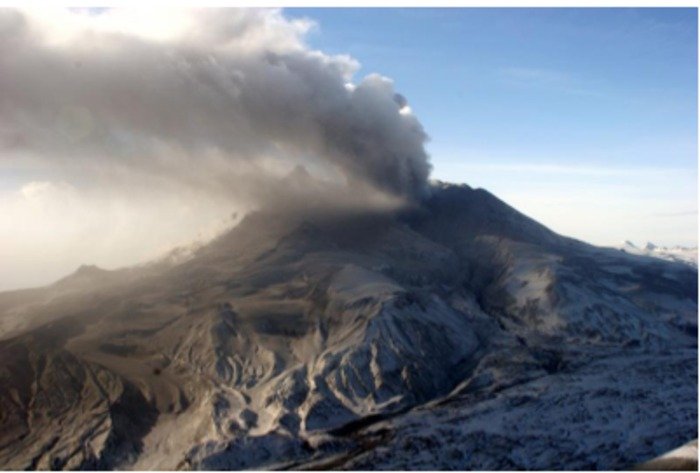2009 eruption of Redoubt volcano in Alaska. Credit: AVO/USGS
WASHINGTON, April 29 (UPI) -- Volcanic eruptions that deviate from normal patterns of pre-event unrest can still help improve forecasts of volcanic activity, U.S. researchers say.
A research team led by the Carnegie Institution analyzed the period immediately preceding the 2009 eruption of the Redoubt volcano in Alaska, characterized by an abnormally long period of pre-eruption seismic activity that's more usually associated with short-term warnings of eruption, an institution release reported Monday.
Usual warnings can include a gradual increase in the rate of seismic activity, a progressive alteration in the type of seismic activity, or a change in ratios of gas released, they researchers said.
"But there are numerous cases of volcanic activity that in some way violated these common patterns of precursory unrest," Carnegie scientist Diana Roman said. "That's why examining the unusual precursor behavior of the Redoubt eruption is so enlightening."
About six to seven months before the March 2009 eruption, Redoubt began to experience long-period seismic events that intensified into a sustained tremor over the next several months. Then short-period earthquakes were observed at an increased rate below the summit leading up to the eventual eruption.
This was unexpected because precursor observations usually involve a transition from short-period to long-period seismic activity, not the other way around, the researchers said.
The unusual seismic pattern could suggest some unique aspect of the volcano's magma system, knowledge of which could improve predictions of future eruptions, they said.
"Our work shows the importance of clarifying the underlying processes driving anomalous volcanic activity," Roman said. "This will allow us to respond to subtle signals and increase confidence in making our forecasts."















